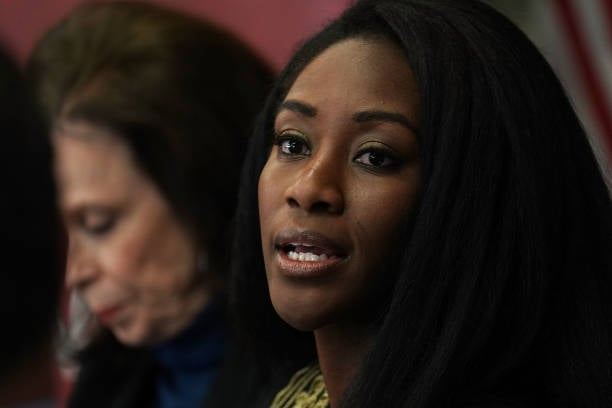Unveiling the Firing of Karen Attiah: A Battle Over Truth and Expression
In a significant turn of events, former Washington Post columnist Karen Attiah has lifted the veil on her recent termination from the publication. The circumstances surrounding her firing, which she disclosed through a post on Substack, have sparked heated discussions about editorial freedom, racial dynamics, and the challenges faced by journalists, particularly those representing marginalized perspectives.
Context of Her Dismissal
Karen Attiah, who had been a prominent voice at the Washington Post for over 11 years—serving as both a Global Opinions Editor and a columnist—was let go on September 11. The narrative leading to her dismissal suggested that her termination was a direct consequence of her comments regarding Charlie Kirk, a figure who has garnered controversy for his views, particularly concerning race. However, Attiah aimed to clarify that misinformation regarding the reasons for her firing had grown rampant, prompting her to publish the email notification she received.
With an enduring commitment to truth-telling, Attiah sought to debunk claims that her dismissal was solely tied to the criticisms she made of Kirk’s statements about Black women.
The Contents of the Termination Email
In the termination email shared on Substack, the Washington Post’s human resources chief pointed to Attiah’s posts on social media following Kirk’s murder. The email alleged that her comments “violate The Post’s social media policies” and posed threats to the integrity of the organization, as well as to the physical safety of its staff. This broad categorization, alongside the lack of a direct conversation regarding the decision, left Attiah feeling blindsided.
The specific posts in question focused not just on Kirk but on societal responses to violence and racial dynamics. Attiah expressed her refusal to engage in “performative mourning” for individuals who espouse harmful ideologies, specifically calling out the dangers of expecting marginalized communities to extend empathy to figures with histories of hostility.
Response to Accusations and Social Media Policies
Interestingly, while the termination email cited multiple public comments, the allegations did not directly reference any wrongdoing concerning Kirk himself. Instead, it highlighted comments concerning the broader societal issues of racism and violence, framing them as violations of expected decorum at the publication.
Attiah strongly rejected the characterization of her actions as “gross misconduct.” She argued that her critiques not only reflected her values but were validated in light of ongoing discussions about race and safety in America. Her engagement with critical topics is not just a matter of personal belief; it embodies a broader discourse essential for the times we live in.
The Impact of Her Firing
The implications of Attiah’s firing are profound. As the final full-time Black opinion columnist at the Washington Post, her dismissal shines a light on the alarming trend of diminishing Black voices in major news outlets. The Washington Post is experiencing a significant restructuring, with over 60 staffers having taken buyouts in 2023, including well-known Black journalists such as Robin Givhan. This exodus raises critical questions about diversity, representation, and the editorial direction of major media institutions.
Attiah’s concerns resonate within a larger narrative of what she describes as a “purge of Black voices from academia, business, government, and media.” This assertion underscores the systemic barriers that continue to challenge those advocating for racial equity and truth in journalism.
A Commitment to Continuing Work
In her Substack narrative, Attiah expressed that her commitment to her work remains steadfast despite her firing. She emphasized her belief in the power of the written word as a tool for advocacy and change. Her dismissal may have closed one chapter, but she articulates a sense of resolve to persist in her mission, signaling to her followers that her voice will remain influential in discussions surrounding race, justice, and the role of journalism.
In a media landscape increasingly dominated by corporate interests and the looming specter of censorship, Attiah’s experience serves as a critical juncture for reflection on journalistic responsibility, racial equity, and the importance of diverse voices in shaping public discourse.
Through this unfolding story, Attiah not only highlights the precarious nature of media careers but also reinforces the need for honest conversations about race, integrity, and the essence of true journalism.



